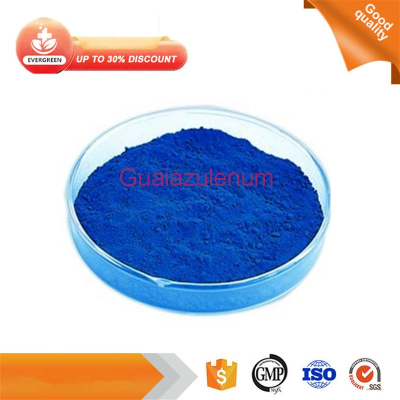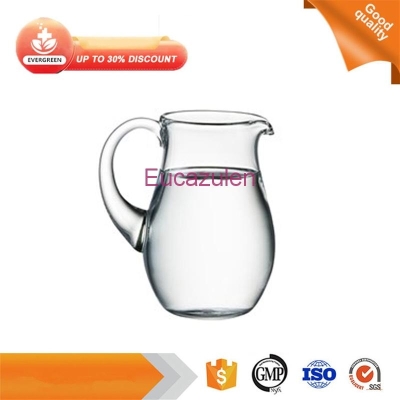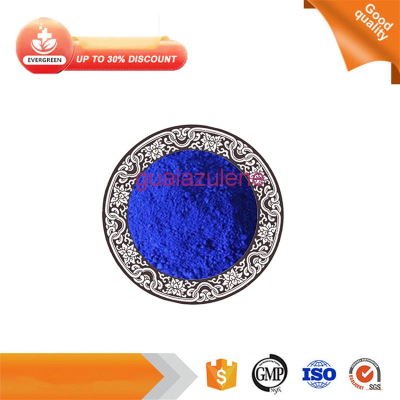-
Categories
-
Pharmaceutical Intermediates
-
Active Pharmaceutical Ingredients
-
Food Additives
- Industrial Coatings
- Agrochemicals
- Dyes and Pigments
- Surfactant
- Flavors and Fragrances
- Chemical Reagents
- Catalyst and Auxiliary
- Natural Products
- Inorganic Chemistry
-
Organic Chemistry
-
Biochemical Engineering
- Analytical Chemistry
- Cosmetic Ingredient
-
Pharmaceutical Intermediates
Promotion
ECHEMI Mall
Wholesale
Weekly Price
Exhibition
News
-
Trade Service
The deepening of understanding of the new coronary pneumonia is also promoting the continuous adjustment and improvement of the New Coronary Pneumonia Diagnosis and Treatment Program.
On September 15th, the Comprehensive Unit of the Joint Prevention and Control Mechanism of the State Council to Respond to the Outbreak of New Coronavirus Pneumonia issued the New Coronavirus Pneumonia Diagnosis and Treatment Program (7th Edition), which, on the basis of the original diagnosis and treatment plan, revised and refined the transmission route, epidemic surveillance, epidemiological investigation and other aspects.
The Programme has added genetic sequencing content to the sample collection and laboratory testing section, requiring that the first cases and cases of unknown sources of infection occurred in various places, as well as positive specimens found by environmental monitoring, should carry out genetic sequencing and other traceability work.
The main revisions are as follows: 1. The overall requirements clearly adhere to the principles of prevention-oriented, prevention and control combined, scientific prevention and control in accordance with the law, in accordance with timely detection, rapid disposal, precise control, effective treatment of the work requirements, the implementation of the "four early" measures, resolutely prevent the import of overseas outbreaks and domestic outbreak rebound.
2. Pathogenic and epidemiological characteristics emphasize that the main route of transmission remains through respiratory droplets and close contact, but exposure to virus-contaminated items and the environment exposed to virus contamination can lead to exposure to transmission or aerosol transmission under certain conditions.
3. Outbreak surveillance I is based on changes in the epidemic at home and abroad, the epidemiological history of cases emphasizes more accurate science, such as the travel history or residence history of communities reporting cases or asymptomatic infected persons, cases or exposure histories of asymptomatic infected persons.
2 is to emphasize that asymptomatic infected persons are respiratory and other specimens of the new coronavirus pathogen test positive, no relevant clinical manifestations, such as fever, dry cough, sore throat and other self-aware or clinically identifiable symptoms and signs, and CT imaging no new coronary pneumonia imaging characteristics.
3 is to increase multi-channel monitoring and early warning, requiring monitoring of populations and the environment in accordance with the principles of point-to-face integration, integration of infectious disease surveillance systems with other sectoral monitoring systems, and combination of routine monitoring and enhanced monitoring.
fourth is to improve the definition of aggregate outbreaks, according to the zoning classification criteria, the aggregate outbreak from "2 cases and above" to "5 cases and above."
tnation.jpg4. Epidemiological investigation increases the definition of overseas imported cases, imported secondary cases, close contacts of close contacts (referred to as close contacts) and so on, emphasizing the ability to do a good job of case investigation, close investigation, case active search, cluster outbreak investigation and investigation information report, and do a good job of infection source, pollution range, transmission characteristics and transmission chain analysis.
5. Close contact and close-up management one is to increase the close-up management requirements, including management methods, management processes, management requirements, information reporting 4 aspects.
2nd is to increase the nucleic acid detection requirements during centralized isolation medical observation, requiring 3 and 1 nucleic acid tests respectively during close contact and dense dense isolation medical observation.
third is to refine the requirements of centralized isolation and home medical observation, to develop centralized isolation and home medicine observation guidelines, to guide local science to carry out related work.
. Epidemic disposal is aimed at low, medium and high risk areas, further refine prevention and control measures, low-risk areas to implement normal prevention and control work, strengthen epidemic surveillance and response preparedness.
Second, the medium-risk areas scientifically delineate the scope of prevention and control areas to the smallest units (e.g. schools to classes, buildings to units, factories to work rooms, workplaces to offices, rural households as the smallest units), start intensive monitoring, the implementation of end-of-life disinfection.
the scope and priorities of nucleic acid detection population according to the needs of epidemic prevention and control and the risk of infection.
3. Third, high-risk areas to schools, buildings, factories, workplaces, natural villages as the smallest unit to delineate the prevention and control area, carry out comprehensive household inspection, limit crowd gathering activities, regional control and other measures to initiate emergency response.
7. Sample collection and laboratory testing have increased the content of gene sequencing, requiring that the first cases and cases of unknown sources of infection occurred in various places, as well as positive specimens found by environmental monitoring, should carry out genetic sequencing and other traceability work.
8. Overseas epidemic import prevention and control adjustment "7 plus 7" "2 plus 1" centralized isolation of medical observation measures.
After receiving customs nucleic acid testing at the port of entry, the entry point is centrally isolated for 7 days and nucleic acid testing at their own expense (in principle, on the 5th day of entering the centralized isolation medical observation point), the negative test results can be transferred to home isolation for 7 days, and after 14 days of isolation, the voluntary self-funded nucleic acid test.
9. Key link prevention and control increase the cold chain food processing and trading place prevention and control requirements, reduce the cold chain link transmission of the risk of epidemic.
10. Measures to strengthen community prevention and control and services, patriotic health campaigns, education and risk communication, personal hygiene and protection, mental health services, etc.
11. On the premise that other requirements for setting up isolation sites remain basically unchanged, the location requirements will be modified to "be relatively independent and maintain a certain protective distance from densely populated residential and active areas", which is conducive to enhancing the overall isolation capacity of the city on the basis of ensuring isolation safety and avoiding the spread of the epidemic.
The prevention and control program requires all localities to further crush the responsibilities of the "quartet" of territories, departments, units and individuals, strengthen joint prevention and control, strengthen capacity-building, regularly conduct research and risk assessment of the epidemic situation in their jurisdictions, organize training and practical exercises in prevention and control skills, strengthen the guidance and inspection of key areas, key sites, key population prevention and control work, and urge the implementation of various prevention and control measures.
Name Source: National Health Commission Copyright Notice: All text, images and audio and video materials on this website that indicate "Source: Mets Medicine" or "Source: MedSci Original" are owned by Mets Medicine and are not authorized to be reproduced by any media, website or individual, and are authorized to be reproduced with the words "Source: Mets Medicine".
all reprinted articles on this website are for the purpose of transmitting more information and clearly indicate the source and author, and media or individuals who do not wish to be reproduced may contact us and we will delete them immediately.
reproduce content at the same time does not represent the position of this site.
leave a message here.







